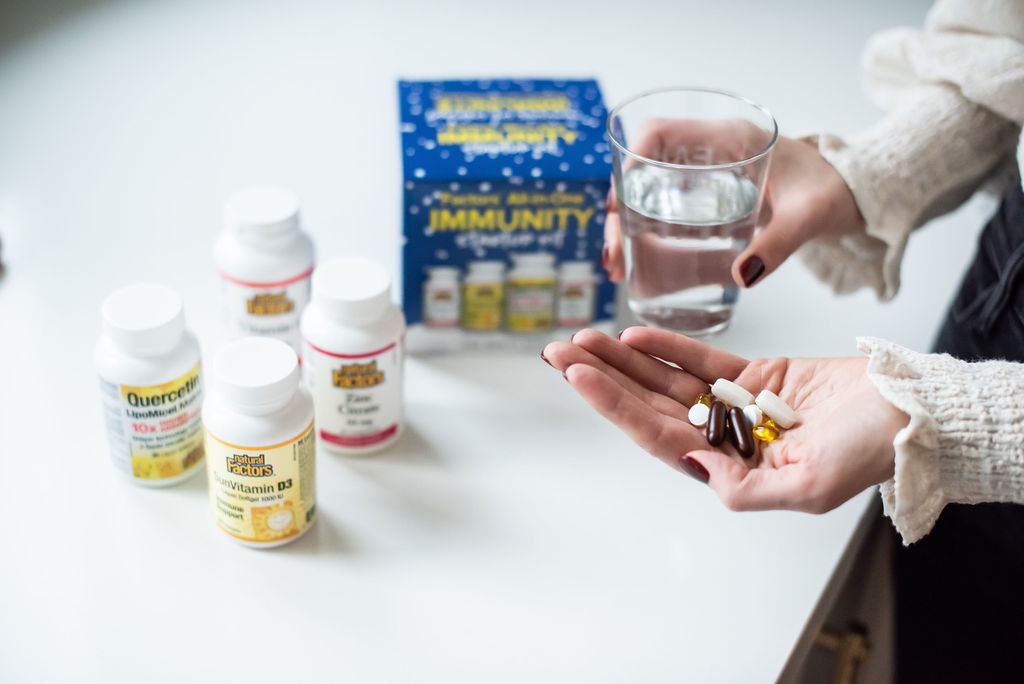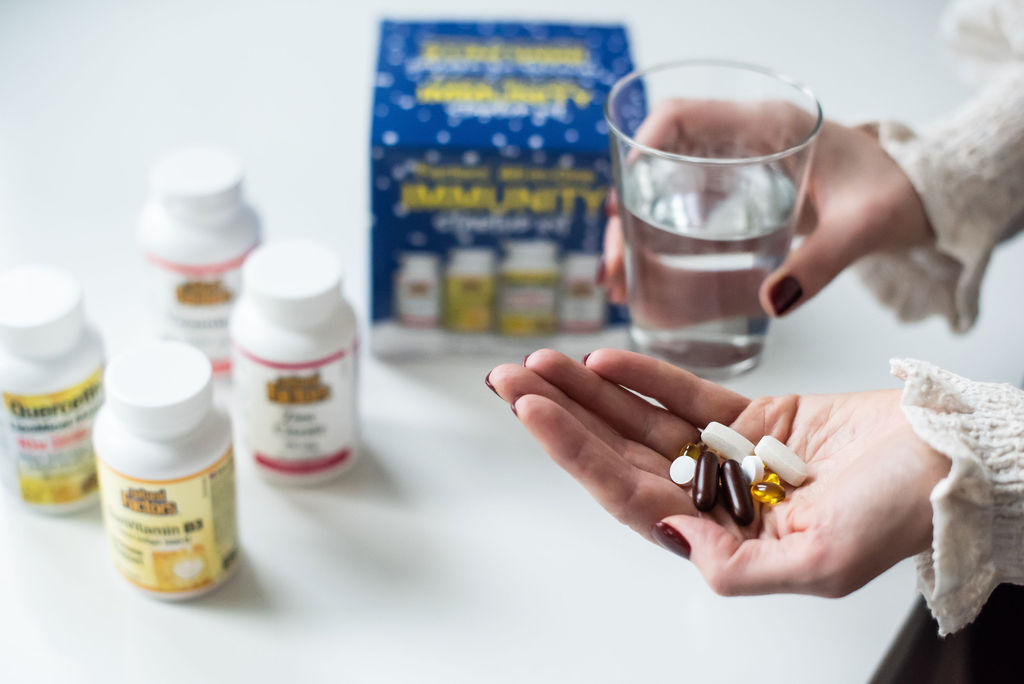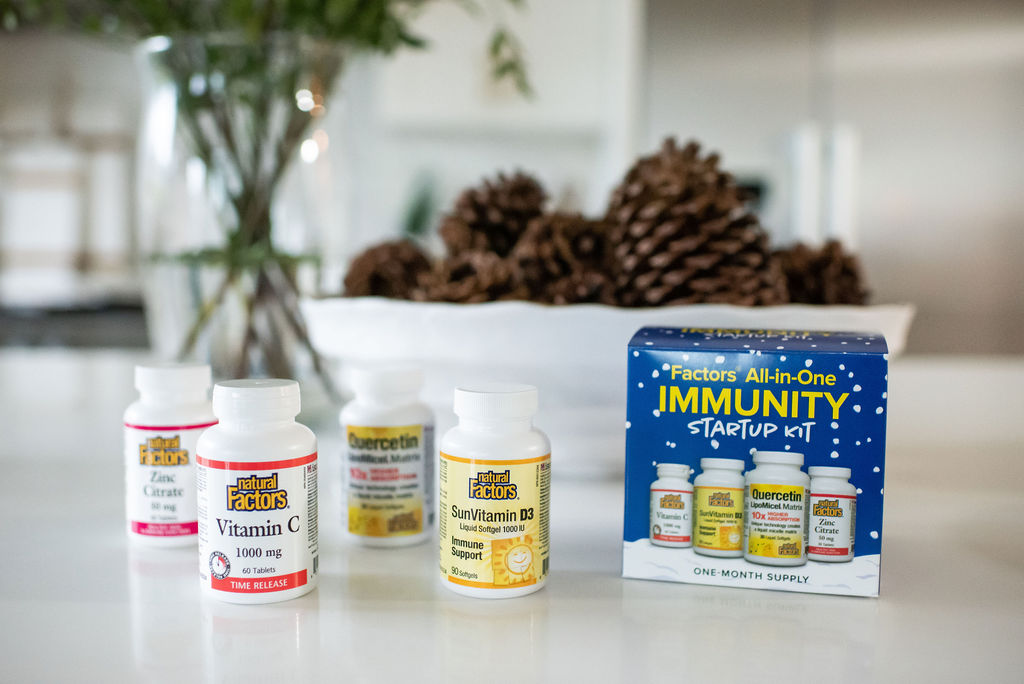Mighty Mushrooms


While there is no way to guarantee that you will never, ever get sick; a strong immune system is one of the best defences we have to prevent pathogens that enter the body from developing into a full-blown illness. What you eat and how you live truly impacts the health of your germ-fighting army; however there are also some key nutrients that give your body that extra helping hand.

Quercetin is perhaps the most abundant and active member of a group of pigments found in plants known as flavonoids. Quercetin is found in many fruit, especially citrus, apples, and berries, green leafy vegetables, seeds and nuts, green tea and other medicinal plants, dark chocolate, and red wine.
Quercetin exerts considerable health benefits as an important antioxidant and anti-inflammatory compound. Much of the recent research on quercetin has focused on its immune enhancing and antiviral aspects. It boosts white blood cell activity and mobilizes them to areas of infection. In human cell cultures quercetin has been shown to block the infectivity of a variety of viruses by inhibiting multiple processes in the virus life cycle. A human clinical trial in athletes showed these effects translated to quercetin reducing upper respiratory viral infections.
The excitement with quercetin as an answer to COVID-19 was initially the result of the possibility that quercetin may enhance the antiviral effects of ionic zinc. When zinc is unbound to other molecules, i.e., when it is in a free ionic state, it exerts significant action in blocking viruses from replicating. It does this action by inhibiting an enzyme produced by the virus known as replicase. This enzyme is what a virus uses in order to reproduce itself within human cells. Quercetin acts as what is known as a zinc ionophore by basically creating a channel that allows free ionic zinc to enter the infected cell and block viral replication.
For more detailed information I would recommend checking out https://doctormurray.com/is-quercetin-natures-magic-bullet-against-covid-19/
The strength of your immune system is in large part determined by the health of your gut. In fact, up to 80% of the immune system resides within the gut, so ensuring a healthy and diverse microflora landscape is crucial in helping to fight off pathogens. Probiotics also promote proper digestion and elimination which is super important as nutrient deficiencies, food allergies and intolerances, and increased toxin exposure from constipation, are some key underlying factors that can contribute to decreased immunity.
Probiotics also have benefits beyond immune strength including increased energy, radiant skin, decreased cravings and so much more.
Over 50 years ago researchers discovered that vitamin C helps disease-fighting white blood cells gobble up and destroy viruses and bacteria. It is also crucial for the growth and repair of every cell and tissue in the body, so the importance of getting enough cannot be overstated. Vitamin C “contributes to immune defense by supporting various cellular functions of the body’s immune systems, according to 2017 study published by The National Institute of Health, and vitamin C appears to prevent and treat “respiratory and system and system infections.”
Since we cannot produce vitamin C in the body, focusing on foods high in vitamin C like spinach, broccoli, tomatoes and kiwis is a must. A quality supplement can also be helpful, especially during cold and flu season when fresh produce is often unavailable and the body’s need for vitamin C increases.
Many people associate vitamin D with healthy bones because of its role in calcium absorption in the body; but more and more studies are discovering the major roles this “miracle nutrient” plays when it comes to all functions, especially those of the immune system.
Vitamin D is a key player in helping the body to produce over 200 different antimicrobial peptides. These proteins help to combat and safely eliminate any unwanted intruders and prevent us from getting sick. Vitamin D supplements have been shown to lower the risk of viral respiratory infections.
With our relatively short Canadian summers and northern location, it’s virtually impossible to absorb the necessary amount of vitamin D needed for all its numerous functions. The best way to ensure you are getting enough vitamin D is to take 2,000-5,000 IUs daily of a quality D3 supplement.
It is only in the last 40 years that studies have revealed the essentiality of zinc to human life. Zinc is crucial for DNA creation, cell growth, brain function, tissue repair, sexual maturity and especially, immune function.
During cold and flu season, I recommend increasing zinc in the diet through food sources like seafood, most notably oysters, red meat, poultry, beans, nuts and some fruit and veggies. In addition, supplementing with zinc lozenges is a great way to make sure you are getting enough of this amazing micronutrient.
Echinacea has been used medicinally for centuries for its immune-boosting properties, as well as its anti-inflammatory, antiviral, and antibacterial effects. Echinacea works to increase the number of white blood cells, helping not only to prevent illnesses, but also shortening their duration. Use echinacea when you start to feel a cold coming on, a tickle in the throat or general tiredness.
Keep your natural medicine cabinet stocked with these key nutrients and you can empower yourself and help your family stay healthy and vibrant all year round.
xo
Karlene

